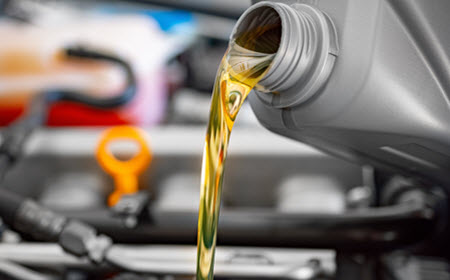- October 19, 2022
- By Cerebro Marketing
- In BMW Repair
- Tags BMW PCV Valve, BMW PCV Valve Failure, BMW PCV Valve Failure Fix, BMW PCV Valve Failure Reasons
- 329
- 0

The PCV valve is a key component of your BMW’s engine, and it helps to keep the engine running smoothly. The PCV valve is located in the BMW’s engine block, and it controls the flow of oil and air through the engine.
A BMW’s PCV valve is made up of two parts: the check valve and the pressure regulator. The check valve allows air to flow into the engine, and it prevents oil from leaking out. The pressure regulator controls the amount of pressure that is exerted on the oil, and it ensures that the correct amount of oil is being circulated through the engine. Without a functioning BMW PCV valve, the engine would not be able to function properly.
Signs that your BMW may have a PCV valve failure include:
If you suspect that your BMW has a PCV valve failure, it’s important to take it to a qualified mechanic as soon as possible. Left unchecked, this issue can lead to more serious problems with the engine.
BMW is known for its luxurious cars that come packed with features and high-performance engines. However, BMW owners may eventually experience issues with their PCV valve.
One common cause of BMW PCV valve failure is oil sludge build-up. This can happen when the engine oil isn’t changed frequently enough, and it can lead to clogging and blockages.
Another possible cause is a faulty or damaged diaphragm. When this happens, the PCV valve can’t open and close properly, which can cause pressure build-up in the crankcase.
BMWs also have a lot of aftermarket parts that can interfere with the PCV valve.
BMWs also have a lot of vacuum lines, and if one of them leaks, it can cause the PCV valve to fail.
Finally, BMWs have a complex engine design, which means that there are a lot of places for the PCV valve to leak. As a result, it is not surprising that BMWs are susceptible to PCV valve failures.
BMW is known for its luxury cars that come with a high price tag. BMW drivers expect their car to perform at top level and have a long lifespan. In order to maintain optimal performance and prevent BMW PCV valve failure, it is important to do routine maintenance on the car.
BMWs have a history of PCV valve failures, which can lead to engine problems. The best way to avoid this is to get routine maintenance, such as an oil change, every 5,000 miles. This will help to keep the engine running smoothly and prevent any issues with the BMW PCV valve.
BMW drivers should also be aware of the signs of PCV valve failure, such as oil leaks or engine misfires, so they can take action quickly if an issue does arise. By following these tips, BMW drivers can help to prevent PCV valve failure and keep their car running smoothly for years to come.
While replacing a PCV valve is a relatively simple task, it’s important to have the work done by a qualified BMW mechanic. They will have the experience and knowledge necessary to properly diagnose the problem and make the necessary repairs. As a result, you can be confident that your BMW will be back on the road in no time.
We offer a full range of garage services to vehicle  owners located in the Las Vegas area. All services are performed by our highly-qualified mechanics. Whether you drive a passenger car or medium sized truck or SUV, our mechanics strive to ensure that your vehicle will be performing at its best before leaving our car shop. Call us today if you are in or around Spring Valley, Summerlin, or Las Vegas, NV. We are here to serve you and earn your repeat business, so give us a call today to set up a convenient appointment.
owners located in the Las Vegas area. All services are performed by our highly-qualified mechanics. Whether you drive a passenger car or medium sized truck or SUV, our mechanics strive to ensure that your vehicle will be performing at its best before leaving our car shop. Call us today if you are in or around Spring Valley, Summerlin, or Las Vegas, NV. We are here to serve you and earn your repeat business, so give us a call today to set up a convenient appointment.